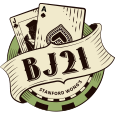I was in Vegas with friends this weekend, and while playing Pai-Gow, it occurred to me a pretty simple count method could take advantage of the dragon hand (extra hand) option. The idea is simple: 5 confederate players, 4 always making minimum bets, and the 5th player always making the maximum bet. (Note there's no varying of wager here.) All 5 players communicate the number of Aces seen, as well as if the Joker is seen. For simplicity, treat aces and Joker equallly, so the count spans 0 thru 5. On average, the count is either 2 or 3. Fairly often, the count is 4 or 5. I propose that the dragon hand has a +EV for a high count (rationale: strip out the joker and aces from the deck, and the player probably has a significant advantage). So, when the count is bad, one of the minimum players takes the dragon. But, when the count is good, the minimum players pass the dragon, and the max bettor takes the option. (The dragon bet must equal the initial wager.)
I haven't run through the analysis yet, because I figure the net won't be too fantastic. Since the commission is 5% on a winning hand, the per hand house edge is probably about 1.25%. Let's say the max bet is 100x the min bet (e.g., $10 min bet, $1000 max bet). So, the 4 min bets together are only 1/25 of the single max bet, and we can ignore the negative EV of the min bets for now. We need to run the analysis for the various counts, and perhaps use specific pair-splitting tables per count. I'm guessing that the edge from the optimized pair-splitting tables is only .25%. However, in the best case (all aces and jokers out), the dragon hand may be +5% EV. But, the total EV is the optimized EV per count weighted by the count frequency, and the net might not be very much. I'm guessing the overall EV is positive, but even if it's +1%, is it worth it? You'll have 5 guys trying to take $10/hand out of a game?
Any comments? Can you convince me to do the analysis? (I have some C++ code for California Pai-Gow, with the wild joker. I'd have to do so updating of the code, etc.)
Stephen










